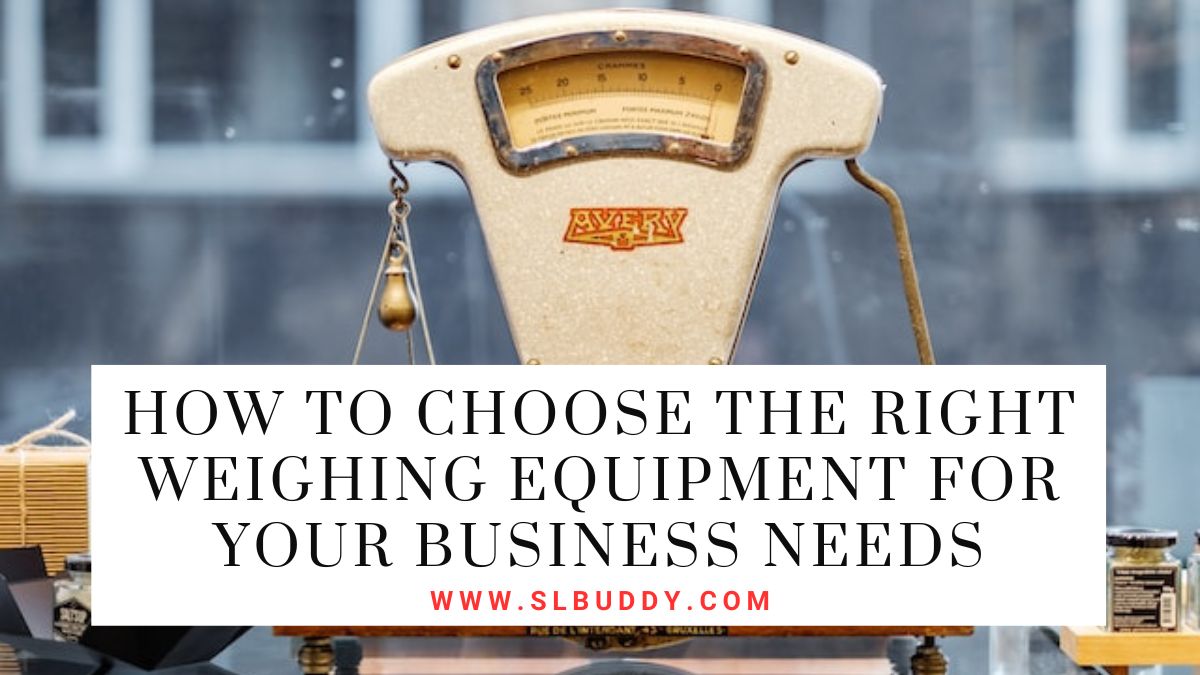
Choosing the right weighing equipment for your business is not just an important decision, but a critical one that can have a profound impact on your overall operations.
The accuracy of measurements, compliance with regulations, and even cost optimization are all influenced by this choice. With a plethora of options available in the market, it becomes imperative to carefully evaluate and consider your specific business needs before making a decision.
In this comprehensive guide, we will delve into the various types of weighing equipment, exploring their unique features, advantages, and potential drawbacks.
By providing more detailed insights and analysis, we aim to equip you with the knowledge and understanding necessary to make an informed decision when it comes to selecting the perfect weighing equipment for your business.
So let’s dive in and explore the world of weighing equipment together!
1. Understand Your Business Requirements: The Starting Point
Before you embark on the journey of shopping for weighing equipment, it’s of utmost importance to have a clear understanding of your specific business requirements.
Take a moment to reflect on the nature of the items you’ll be measuring. Are they small, delicate items or large, robust freight? In addition, consider the level of precision you need in your measurements.
Is it crucial to have exact and precise weight readings, or would an approximate weight suffice for your purposes?
Furthermore, it’s vital to contemplate various factors that could impact your weighing equipment’s performance.
Take into account the maximum weight range you anticipate needing to measure, as this will determine the capacity of the equipment you should consider.
Additionally, consider the level of accuracy required for your operations. Will a moderate level of precision suffice, or do you require high levels of accuracy for your specific industry or application? Lastly, ponder the conditions under which the weighing equipment will be utilized.
Will it be subject to extreme temperatures, humidity, or other environmental factors? These considerations will help guide you in selecting the most suitable weighing equipment that aligns with your unique business needs.
2. Consider the Type of Weighing Equipment: Making the Right Choice
There are various types of weighing equipment available, each suited to different business needs.
For instance, bench scales are ideal for measuring small to medium-sized items, while floor scales can handle larger, heavier items.
Analytical balances offer high precision for laboratory settings while counting scales are perfect for businesses needing to count parts or inventory quickly.
Understanding the features and benefits of each type can help you make an informed choice.
Luckily, there are vendors that offer most, if not all, of the different types of weighing equipment, making it easier for you to find everything you need in one place. If you take a look at 1800scales, you’ll see that they offer a wide variety of weighing equipment, providing you with the convenience and ease of shopping for all your needs in one location.
But, remember, it’s crucial to assess your business requirements first before deciding on the type of weighing equipment you need.
3. Evaluate the Accuracy and Precision: Ensuring Reliable Results
Accuracy and precision are critical aspects of weighing equipment. The level required will depend on your business needs.
For instance, if you’re in the pharmaceutical industry, you’ll need highly accurate balances due to the sensitive nature of the measurements.
On the other hand, for businesses like warehousing or shipping, a slightly lesser degree of precision may be acceptable.
It’s essential to understand the specifications of each weighing equipment and compare them to your business requirements.
This will help you make an informed decision that ensures reliable and accurate results.
4. Check Compliance with Standards and Regulations: Avoiding Legal Pitfalls
Different industries have different regulations when it comes to weighing procedures. It’s crucial to ensure that the equipment you choose not only meets but also complies with these standards.
When searching for scales, look for ones that have been approved and certified by recognized bodies, such as the National Type Evaluation Program (NTEP) in the U.S. or the International Organization of Legal Metrology (OIML) globally.
These certifications provide assurance that the scales have undergone rigorous testing and evaluation, guaranteeing their accuracy and reliability.
By investing in approved scales, you can have peace of mind knowing that your weighing processes are in accordance with industry standards and regulations.
5. Assess Durability and Maintenance: Looking Beyond the Purchase
Weighing equipment is a significant investment, so durability and ease of maintenance are important considerations.
Look for equipment that is made with high-quality materials and has a sturdy construction, ensuring it can withstand frequent use in demanding environments.
Additionally, consider the maintenance requirements of the equipment and whether it will require specialized care or regular calibrations.
By choosing durable and low-maintenance equipment, you not only save on costs but also ensure consistent and accurate performance over time.
6. Consider Cost and Return on Investment: Balancing Quality and Affordability
While cost should not be the sole determining factor, it’s an important consideration.
Weighing equipment can range from budget-friendly to high-end, and the price point is often a reflection of its features and capabilities.
It’s essential to find a balance between quality and affordability, taking into account your business needs and expected return on investment (ROI).
Remember that cheaper options may not always provide the best long-term value, as they may require frequent repairs or replacements, ultimately costing your business more in the long run.
On the other hand, investing in high-quality equipment may have a higher upfront cost but can deliver better performance and last longer.
Don’t miss: Elevating Your Brand with Artistic Campaigns
The bottom line
To sum it up, choosing the right weighing equipment for your business involves a careful evaluation of your needs, the type of equipment, its accuracy, compliance, durability, and cost.
By considering these factors, you can select equipment that not only meets your business requirements but also contributes to operational efficiency and regulatory compliance.
Remember, the right weighing equipment is a valuable asset that can contribute significantly to your business success. Keep these tips in mind and you’ll surely find the right fit for your needs.










